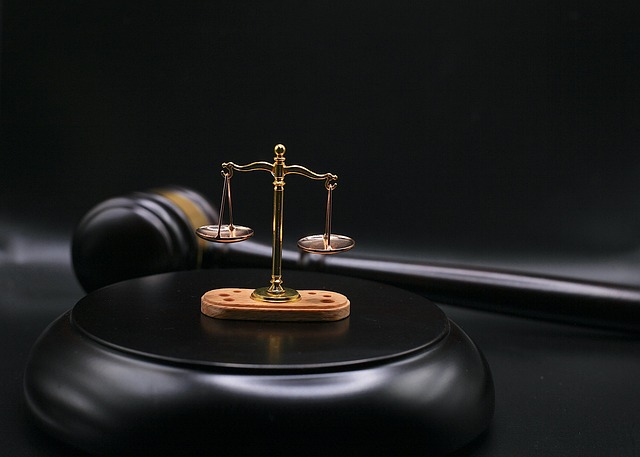Criminal Defense Attorneys are essential advocates in the justice system, specializing in protecting individuals from unjust criminal charges. They face a distinct challenge in patent infringement cases, which involve intellectual property disputes through the Civil Litigation Process. These attorneys require deep legal knowledge and analytical skills to navigate complex court procedures, both state and federal. Their strategic defenses blend IP law expertise with an understanding of the Civil Litigation Process for Patent Infringement, aiming for complete charge dismissals. Ethical considerations are paramount, demanding objectivity and confidentiality while striving for positive outcomes in high-stakes litigation.
“Criminal Defense Attorneys: Navigating the Complexities of Justice
In any legal system, Criminal Defense Attorneys play a pivotal role in ensuring fairness. This article delves into their multifaceted responsibilities, particularly in patent infringement cases. We explore the Civil Litigation Process for Patent Infringement, providing a step-by-step guide to understanding this intricate domain. From strategies and defenses to the legal expertise and ethical considerations required, we unravel the crucial aspects that define effective representation. Remember that, in these high-stakes scenarios, skilled attorneys are the cornerstone of justice.”
- Understanding the Role of Criminal Defense Attorneys
- The Civil Litigation Process for Patent Infringement: A Step-by-Step Guide
- Strategies and Defenses in Patent Infringement Cases
- The Legal Expertise Required for Effective Representation
- Ethical Considerations and Professional Responsibilities
Understanding the Role of Criminal Defense Attorneys

Criminal Defense Attorneys play a pivotal role in our justice system, serving as advocates for those accused of crimes. Their primary duty is to protect their client’s rights and ensure they receive a fair trial. This involves a complex process that differs significantly from the Civil Litigation Process for Patent Infringement. While patent cases focus on intellectual property disputes, criminal defense centers around protecting individuals from unjust prosecution.
These attorneys must possess a deep understanding of laws and regulations, as well as strong analytical skills to navigate the nuances of each case. They represent both corporate and individual clients, providing strategic guidance tailored to their unique needs. Whether facing misdemeanor charges or complex white collar defense scenarios, their goal is always to secure the best possible outcome, aiming for a complete dismissal of all charges whenever feasible.
The Civil Litigation Process for Patent Infringement: A Step-by-Step Guide

The Civil Litigation Process for Patent Infringement involves a series of structured steps designed to protect intellectual property rights and determine liability. It begins with filing a complaint, where the patent holder alleges infringement by a defendant. The latter is then served with legal papers outlining the accusations, after which they have an opportunity to respond and defend themselves within a set timeframe.
Discovery follows, during which both parties exchange relevant information and documents crucial for building their cases. This phase is pivotal in many patent disputes, as it helps uncover evidence that could support or refute claims. The process culminates in a trial where a judge or jury decides whether the defendant infringed upon the patent. A successful defense can lead to a complete dismissal of all charges, showcasing an unprecedented track record for winning challenging defense verdicts.
Strategies and Defenses in Patent Infringement Cases

When faced with patent infringement claims, Criminal Defense Attorneys employ strategic defenses tailored to each case. These strategies often involve a deep understanding of both intellectual property law and the Civil Litigation Process for Patent Infringement. One common approach is challenging the validity of the patent, questioning its novelty or non-obviousness. This defense can be particularly effective in cases where the accused can demonstrate that the patented technology was already in use or publicly known before the inventor’s claimed date of invention.
Additionally, Criminal Defense Attorneys may focus on the absence of deliberate intent to infringe. In many jurisdictions, patent infringement is a civil matter, but understanding white collar defense strategies is still crucial. This involves demonstrating that any infringement was unintentional, due to lack of knowledge or misunderstanding of patent boundaries. By navigating all stages of the investigative and enforcement process, these attorneys aim to achieve extraordinary results for their clients, ensuring fair outcomes in what can be complex legal battles.
The Legal Expertise Required for Effective Representation

Criminal Defense Attorneys need an extensive understanding of the legal system to provide effective representation. Their expertise extends beyond basic knowledge of laws and regulations; it encompasses the intricate procedures involved in both state and federal courts. This includes proficiency in the Civil Litigation Process for Patent Infringement, a complex area crucial for high-stakes cases.
The ability to navigate these complexities is vital for preparing compelling defenses, presenting evidence effectively, and arguing legal points persuasively. Whether representing corporate clients or individual accused, successful criminal defense attorneys must possess sharp analytical skills, strong communication abilities, and the tenacity to pursue winning challenging defense verdicts.
Ethical Considerations and Professional Responsibilities

Criminal Defense Attorneys face a unique set of ethical considerations and professional responsibilities, especially when navigating complex cases like civil litigation for patent infringement. Their primary duty is to advocate for their clients’ rights while upholding the integrity of the legal system. This delicate balance requires attorneys to be vigilant in protecting client confidentiality, ensuring transparency, and providing zealous representation without causing harm to others.
Ethical guidelines mandate that defense lawyers maintain an objective and unbiased perspective, even when facing seemingly straightforward cases of general criminal defense. They must strive for a complete dismissal of all charges whenever possible, utilizing every legal strategy available. An unprecedented track record in achieving positive outcomes is a testament to their proficiency and commitment to justice.
Criminal Defense Attorneys play a pivotal role in safeguarding individuals’ rights within the legal system. Beyond their well-documented responsibilities, these attorneys also navigate complex patent infringement cases involving civil litigation. Understanding the civil litigation process for patent infringement is key to devising effective strategies and defenses. The legal expertise required includes deep knowledge of intellectual property laws and procedural nuances. Ethical considerations and professional responsibilities guide their actions, ensuring fairness and justice in every case they take on. By staying informed about both criminal defense and specific areas like patent law, these attorneys can offer robust representation, protecting their clients’ interests from potential infringement accusations.






